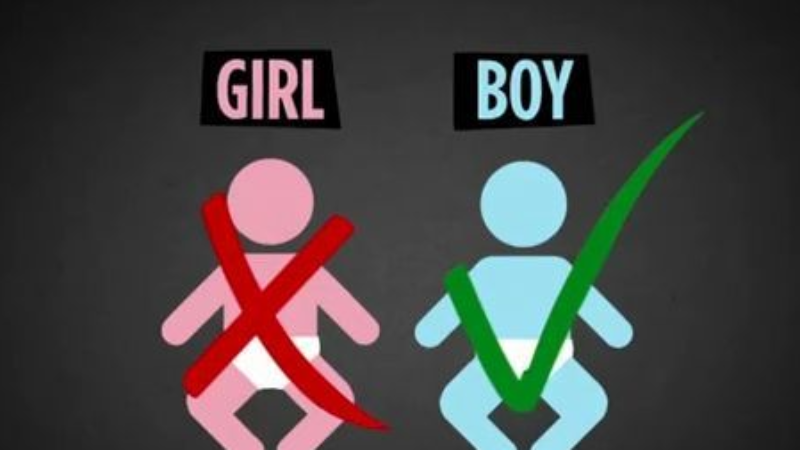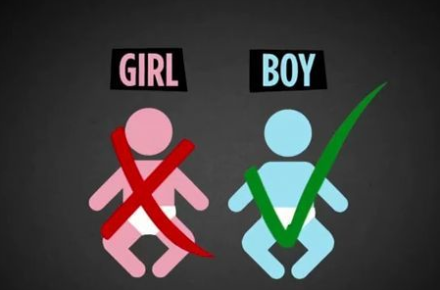
I’m not one of those who wants to chuck lobbyists out of politics, but it does worry me when half-truths are circulated with such efficiency that they gain credence.
Nowhere has this been more in evidence than New Clause 1 – our sex-selection abortion amendment to the Serious Crime Bill.

We have been inundated with accusations that this will have unintended consequences. One such piece from Sunny Hundal appeared last week on this site.
Let’s first deal with the intended consequences. We want to clarify the law so that it is not longer possible for people to claim, as they do, that UK law is silent on the matter of the selective abortion of baby girls. We also want to force the Government to consider action, which our amendment achieves in combination with s79(2) of the Bill.
Most people would agree that these are worthy aims; but not those on the hard-line of the pro-choice spectrum. In the world of Abortion providers like BPAS and commentators like Sarah Ditum sex-selective abortion is perfectly okay. Ditum wrote last week
‘As far as I’m concerned, it doesn’t matter why any woman wants to end her pregnancy. If it’s to select for sex, that’s her choice.’
Surely this is abhorrent to most people? And campaigners know that this line won’t win many votes, so they’re trying the old ‘unintended consequences’ argument. Usually it wouldn’t be enough to rouse me, but when people I respect like Sunny start repeating them, it’s clear that it has gone too far.
So what are they claiming?
Variously we have heard that women will be criminalised, that the amendment will stop abortion for disability, that it will put women’s lives at risk, that it will ruin women’s relationships with doctors and a whole barrage of other criticisms.
A brief response:
Will the amendment criminalise women?
No. This is categorically wrong and shows such legal illiteracy that it could only have been worked up by someone opposed in principle groping for something with which to attack the amendment. First, the amendment does not create any new criminal offence. Second, the practice is already illegal (but not explicitly), so it could not be said to criminalise (because it is already criminal). Thirdly, the amendment has been worded specifically to apply to those who apply the Abortion Act (doctors), so it doesn’t have any risk of criminalising women.
Is the evidence for sex-selective abortion in the UK flimsy?
Only if you are willing to discount the first-hand testimony of the women who have had them. Karma Nirvana, Jeena International, the Sharan Project, Muslim Women’s Network-UK, and the Sikh Women’s Council all work with vulnerable UK women. They have all been crystal clear: sex-selective abortion is a reality in our country. They have provided many case studies to raise the profile. Are these organisations and women lying? Of course not.
Even if we are not willing to take seriously the evidence they have compiled, we cannot ignore that there have been academic studies which have concluded that we have a small but growing problem in the UK, too. One of these – the Dubuc and Coleman 2007 study from Oxford – is seriously robust.
Will this amendment stop abortion for disability where there is a sex-linked condition?
No it won’t – the amendment was drafted specifically to avoid this problem. But I can see why the mistake has been made, you have to delve deep into the area to understand why. In a nutshell, when an abortion is conducted under section 1(1)(d) of the Act for ‘substantial risk’ of ‘serious handicap’ and there is a sex-linked condition like fragile x syndrome, the ‘ground’ for the abortion is disability, not foetal sex. Our amendment is only engaged where the doctor attempts to make the sex of the foetus the ground for the abortion. Therefore, where a doctor has used the sex of the baby to diagnose substantial risk of disability, the amendment simply does not apply.
Will the amendment put women’s lives at risk?
This is perhaps the most hysterical of all. It is also viciously ironic given that the aim of the amendment is to combat a practice which had led to the selective abortion of at least 100 million girls worldwide. The argument made is that, by making explicit what is already the law, women with abusive partners who want them to have sex-selective abortions will not access domestic abuse services for fear of suffering legal consequences. This is totally wrong-headed.
First it is premised upon the idea that women are criminalised by the amendment. They are not, as I’ve explained above – the standing of pregnant women is not affected by this amendment AT ALL. Second, there is nothing in the amendment to diminish domestic violence counselling services. Quite the contrary, it forces the Government to consider improving them through regulation aimed at targeting the practice. Last, a clear statement in law empowers women as it sends a clear message that a person cannot be denied life on the basis of their sex.
Will this amendment solve the problem of sex-selective abortion?
Where Sunny and others are right is that legislative action on its own cannot solve problems like sex-selective abortion. But no-one is arguing that it can. This amendment ought to be part of a much wider raft of measures to address the problems facing women who may be coerced or pressured into sex-selective abortions. That is why it has been drafted to empower the government to develop regulations that would protect women facing pressure to have sex-selective abortions – which Sunny, after all, recognises are wrong and ought to be “stamped out”. This amendment is a small but important step towards that goal, so MPs really should have no compunction at all in supporting Clause 1 today.




More from LabourList
Turning the page? Labour’s recovery in the polls show a path to 2029 victory
Restoration announce recommendations for NEC candidates
‘Factionalism at the top is weakening Labour – and handing a gift to Reform’